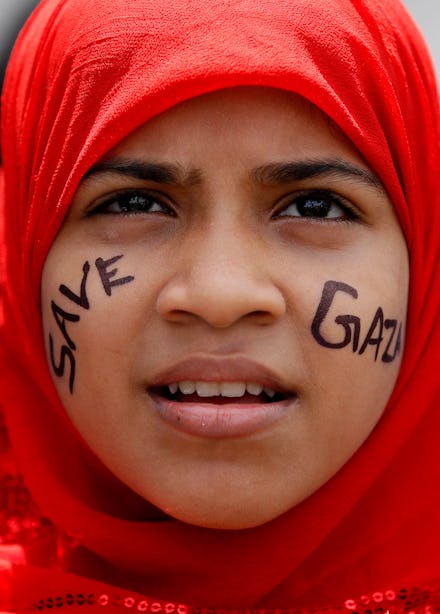Everything Wrong With Calling Muslim Countries "Sexist," In One 5-Minute Video

Very few countries have sterling records when it comes to gender equality. Almost everywhere in the world, women are paid less, subjected to greater violence and granted fewer opportunities to obtain political power than men.
Despite this problem's global nature, the American media too often pushes a troubling narrative: that gendered oppression is the norm in Muslim-majority countries.
Here to reject this claim is Reza Aslan, a renowned religious scholar who went on CNN this week in response to comedian Bill Maher's equating of the "Muslim world" with Islamic State, the violent group that's taken over large parts of Syria and Iraq.
"Liberal Western culture is not just different [from Islam], it's better," Maher said.
Here's why this statement is so problematic:
Background: Aslan's argument hinges on the ease with which mainstream media outlets fall back on blanket characterizations to describe diverse geopolitical situations.
For instance, instead of granting Muslim-majority countries the same case-by-case consideration it would likely give a Christian-majority state, the American media tends to endorse monolithic phrases — "the Muslim world," "Muslim countries," "Islam" — when describing what would otherwise be considered national problems.
The result is rhetoric that uses broad brushstrokes to paint a single picture of a religion practiced by 1.6 billion people worldwide.
Not to mention such broad strokes are frequently inaccurate: According to the World Economic Forum's most recent Global Gender Gap Report, multiple Muslim-majority nations including Senegal (69.23), Bangladesh (68.48) and Indonesia (66.13) scored only slightly lower on a 100-point equality scale than so-called "progressive" Western democracies like the United States and France (73.92 and 70.89, respectively).
That's not to say there aren't problems: Despite Aslan's claims, Indonesia still lags behind much of the region in terms of gender equality, according to the World Bank. Persistent wage and education gaps combine with institutional sexism to create a hostile environment for women. But the same can also be said of countries like India or Ethiopia. The difference is, neither of their shortcomings will be blamed on their Hindu or Christian majorities, respectively.
In other words, Aslan argues that it's the political convenience and persistent reinforcement of Islamophobia that makes us so comfortable describing Muslim-majority countries as if they were all one place with the same set of values. In doing so, we actually end up employing the same logical inconsistencies as any bigot.
It's the very definition of hypocrisy.